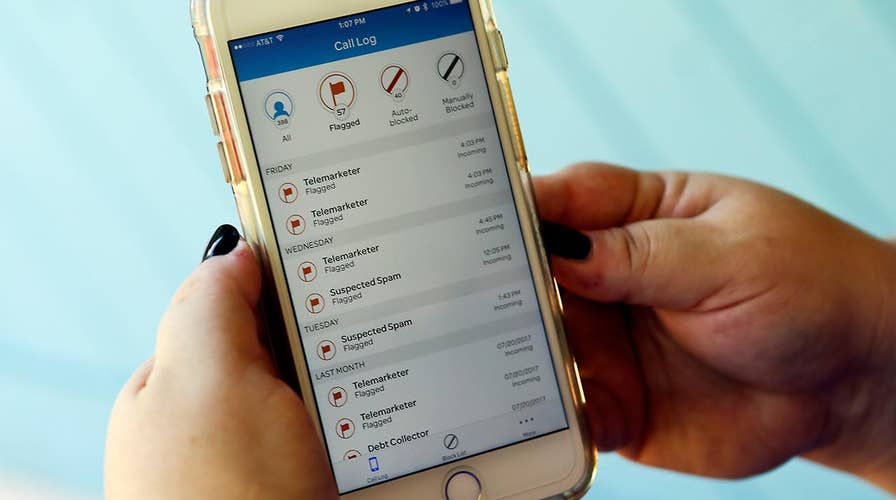US government approves new rules to block robocalls
Phone companies will be able to automatically enroll customers in call blocking services; Fox Biz Flash: 6/6.
The Federal Communications Commission voted today to give phone carriers the power to block robocalls by default. However, the ruling doesn't require the carriers to do this for free.
Thursday's ruling is designed to address a gap in the fight against unwanted scam calls. Carriers already offer call filtering services, but you must opt into them. This can involve contacting your phone provider or downloading an app.
Unfortunately, many consumers, especially elderly Americans, remain unaware of the call filtering services, according to FCC chairman Ajit Pai. So in response, the commission voted to change the requirements.
"We clarify that phone companies may immediately start offering call-blocking programs by default, based on any reasonable analytics designed to identify unwanted calls," Pai said at today's vote.
More From PCmag
The same ruling will require carriers to educate customers on how the call blocking will work, along with the potential risks of missing legitimate calls. In addition, the carriers will need to provide an "opt-out mechanism" in the event consumers don't like the results.
"We also clarify that providers may allow consumers to opt in to more aggressive blocking services," Pai added. "Specifically, carriers can permit consumers to use their own smartphones' contact lists as a 'white list,' and block calls not included on that list."
According to Pai, carriers should begin rolling out improved call filtering systems to stop the robocalls later this year. The filtering will use what's called the "SHAKEN/STIR framework," an industry standard, which can better identify spoofed calls before they reach the consumer. Pai has been urging all carriers to implement the SHAKEN/STIR framework by this year or face potential regulatory action.
"With today's vote, the Commission is taking a major step forward in the fight against unwanted robocalls," Pai said. Still, not everyone was entirely satisfied with the ruling.
Commissioner Jessica Rosenworcel is concerned the ruling will open the door for carriers to offer the robocall-fighting solutions, but at a price. "There is nothing in our decision today that prevents carriers from charging consumers for this blocking technology to stop robocalls," she said in her statement.
"I do not think that this agency should pat itself on the back for its efforts to reduce robocalls and then tell consumers to pay up. They are already paying the price —in scams flooding our phone lines," she added.
Nevertheless, the FCC estimates carriers will save money by implementing the call filtering systems as a default protection. "We expect these blocking services will yield an overall reduction in costs incurred by voice service providers as illegal and unwanted calls will consume less of their network capacity, which can then be devoted more fully to calls and other services that consumers value," the ruling says.
Commissioner Michael O'Rielly, on the other hand, is concerned the robocall-fighting solutions will accidentally block legitimate calls. Unlike email inboxes, which have spam holders you can access, there's no such option for blocked phone calls, he noted.
"Providers will need to exercise great vigilance in their call blocking efforts and establish meaningful safeguards for consumers and legitimate callers," he said in his statement. "I hold out hope that all goes well because there is so much at stake."
This article originally appeared on PCMag.com.

